Winning Images and Juveniles
What makes a special underwater photograph really special? There are a number of factors to consider and all of them need to be present to transform an image from being good to being really great.
Composition is key to creating a standout image – make sure all of the subject is in the frame and allow for negative space too. Focus is of course critical, the image should be in focus – especially the eye of the critter. Contrasting colors, pictures that “tell a story”, capturing behaviour are all important elements too and so is the subject of the photo itself. Capturing an image of a rare and unusual critter, or one which is notoriously difficult to photograph, immediately gives it more appeal than an image of a more commonly seen species – providing it is done well.
Take a look at the image below. How many of the critical criteria are present in this image of a juvenile coconut octopus?
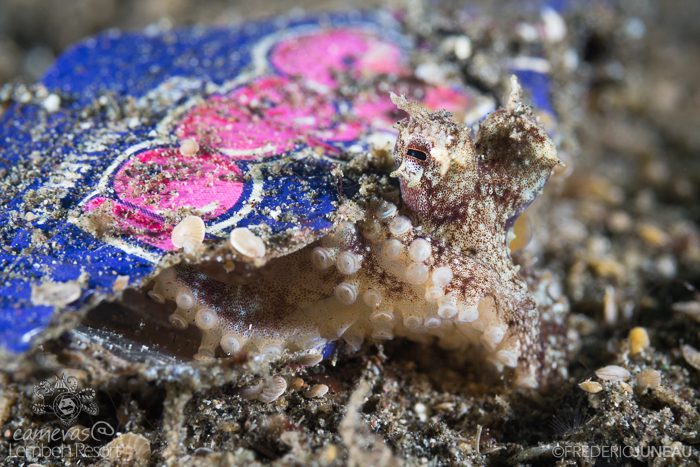
This juvenile coconut octopus has made itself at home!
For sure, the image tells a story and captures behaviour, the candy wrapper adds unusual color to the scene, the eye is beautifully in focus and it’s a JUVENILE coconut octopus.
Images of juveniles are often some of the most highly awarded images for several reasons. It much rarer to see the juvenile of a species that it is to see it the adult form and as juveniles are more susceptible to predators, they tend to be more difficult to capture on camera as their survival instincts are to shy away and hide.
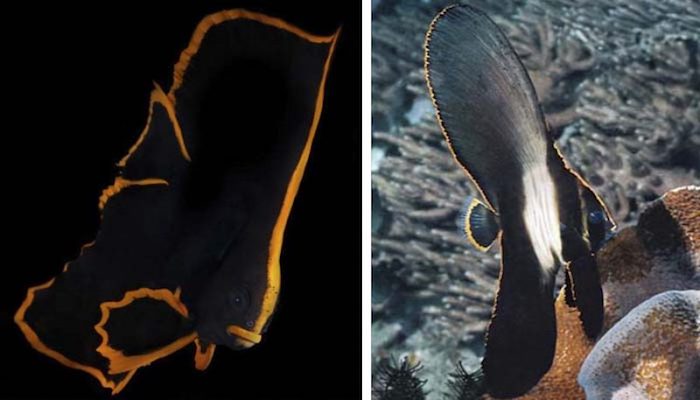
The juvenile form of the pinnate batfish lends itself beautifully to underwater photography
Many species here in Lembeh have very different juvenile forms to their adult appearances. The juvenile pinnate batfish, with it’s black body and vivid orange outline, makes a more dramatic photography subject than it’s silver-black adult form.
With the Lembeh Vs Gulen Underwater Photography Shootout rematch taking place this month, could it be juveniles that help Team Lembeh to achieve another victory?
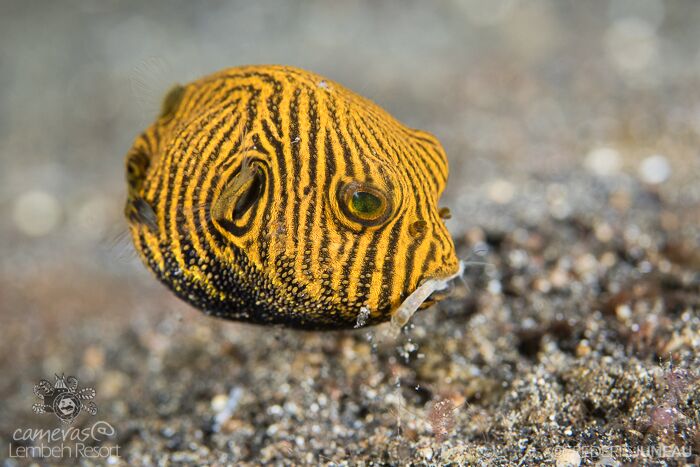
The juvenile star puffer has a much more striking form than the adult version of this species
Will it be exquisite juveniles such as the star puffer that take Team Lembeh Resort to the number one spot once again?
In Lembeh we are extremely fortunate to have dense mangrove forest networks so close to the resort, and to our favorite dive sites. Mangrove forests are natural nurseries for juvenile fish and hatchlings which then venture into the Strait once they have matured, but are still displaying their juvenile colorations. During the Shootout our underwater photography trained Dive Guides will be keeping a key eye out for some of the incredible species we see here such as the “clown” frogfish pictured above, which is actually the juvenile form of the warty frogfish!
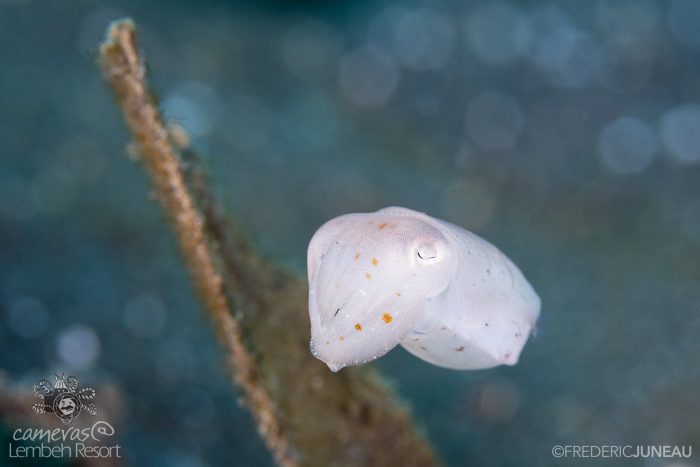
Juvenile dwarf cuttlefish pictured by Lembeh Resorts Photo Pro Fred Juneau
Did you know that ribbon eels not only change color as they mature – they actually change gender too? When ribbon eels are born they are black and genderless, as they begin to mature they turn striking bright blue and vibrant yellow – and become male. Later on, as they continue to evolve, they transition to a yellow coloration and become female!
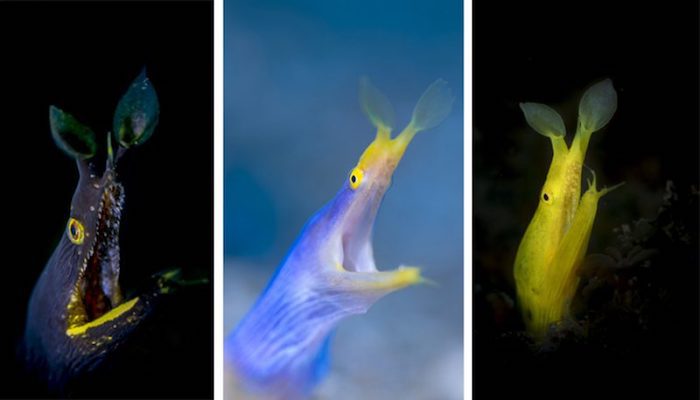
Ribbon eels, transition through 3 different color and gender stages
Are you planning your next underwater photography trip to Lembeh? Next time you are here, ask our Dive Guides and Marine Biologists which juveniles they are seeing in the Strait at that time. You need to be patient when trying to capture stand-out images but as with everything in Lembeh – the possibilities are endless!
If you’d like to follow the Underwater Shootout between Lembeh Resort and Gulen Dive Resort, “Like” the Facebook page here or check out the website for online voting at www.uwshootout.com – we hope you’ll support Team Lembeh!
We look forward to welcoming you to our beautiful Indonesian Dive Resort in Lembeh soon.



